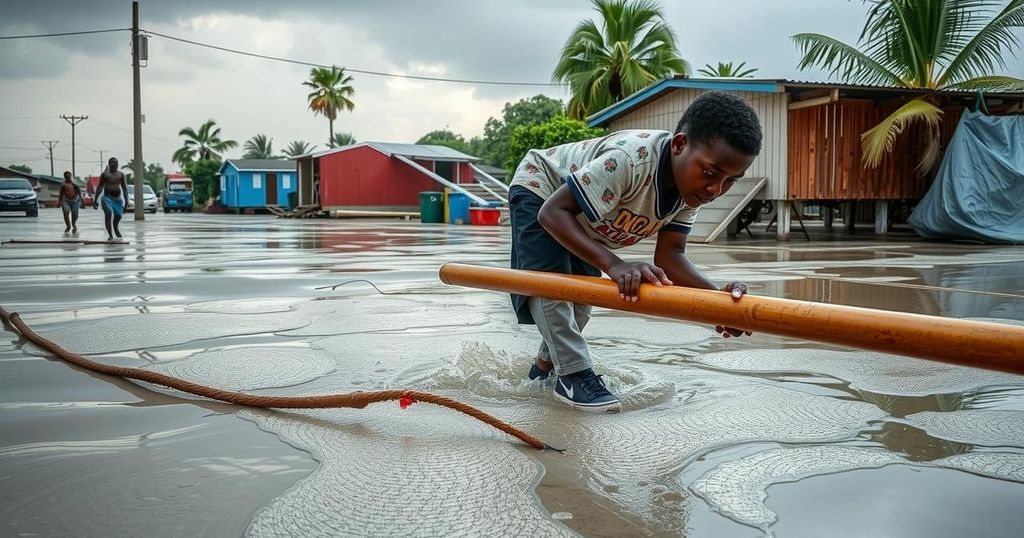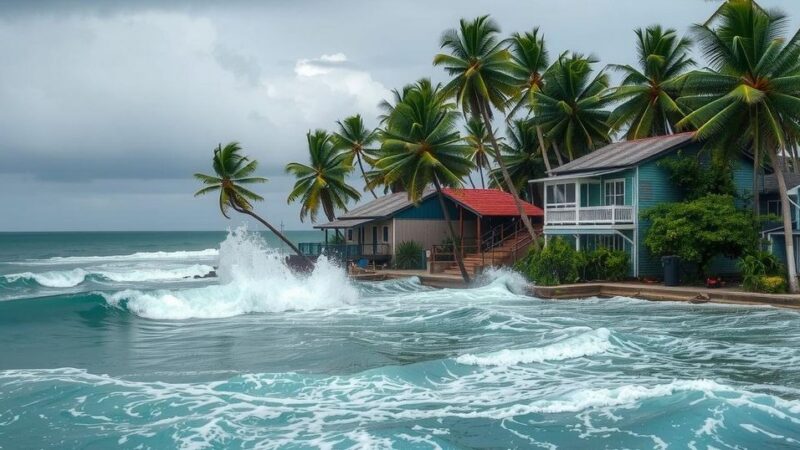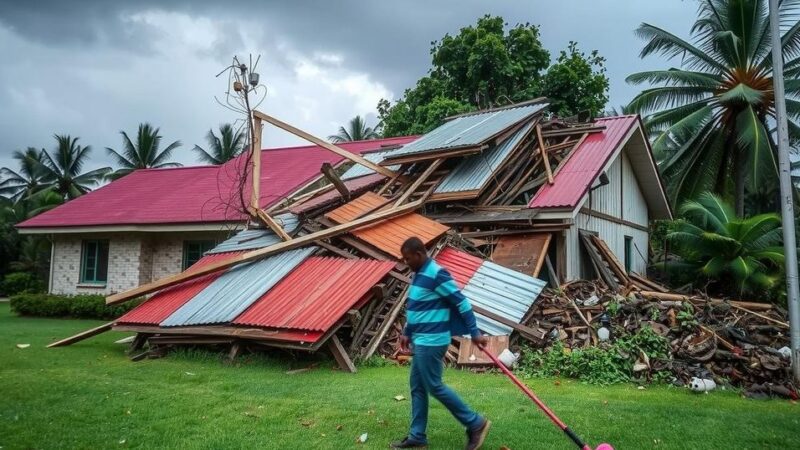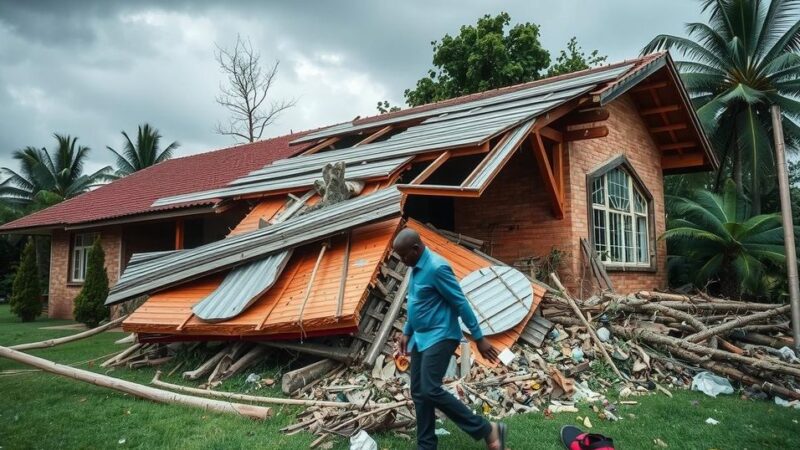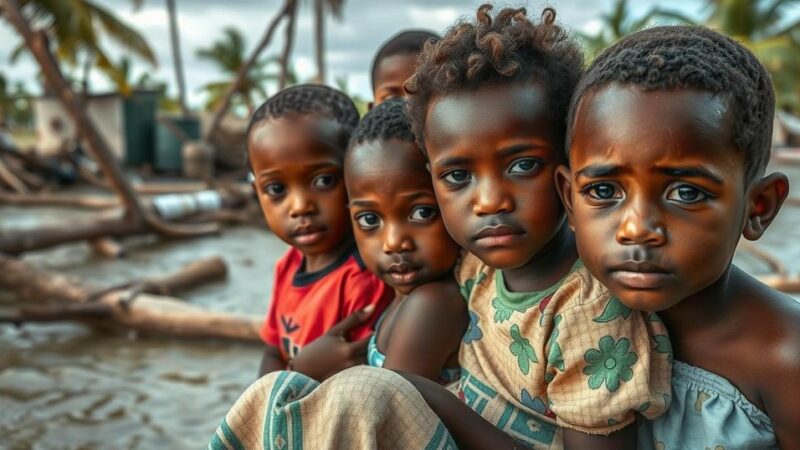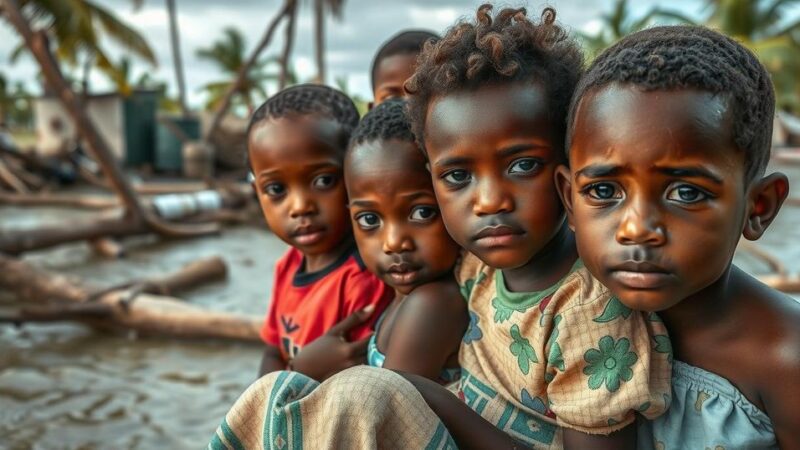Tropical Cyclone Chido has severely impacted northern Mozambique, affecting approximately 90,000 children and destroying over 35,000 homes. The cyclone has compounded pre-existing crises, including conflict and food insecurity, affecting more than 174,000 individuals. UN agencies are responding with emergency aid while assessing the longer-term implications of the disaster.
Tropical Cyclone Chido has wreaked havoc in northern Mozambique, affecting close to 90,000 children as reported by the United Nations Children’s Fund (UNICEF). The cyclone, which struck Cabo Delgado province with fierce winds and heavy rains, has led to the destruction or damage of over 35,000 homes and has displaced numerous families. The total number of individuals impacted is estimated to be around 174,000, with assessments ongoing to determine the full extent of the damage. Significant infrastructure, including at least 186,000 classrooms and 20 health facilities, has been severely impacted.
Cyclone Chido made landfall near the city of Pemba, causing considerable destruction to civilian infrastructure and disrupting electrical and communication services. Mary Louise Eagleton, UNICEF Representative in Mozambique, emphasized that the nation is among the most affected by climate change, with children in the region already battling various crises such as conflict, drought, and disease outbreaks prior to this cyclone.
The Cabo Delgado region has been in turmoil for over seven years, plagued by violent conflict that has resulted in significant internal displacement, primarily affecting women and children. The cyclone has compounded existing challenges for families striving to rebuild their lives. Furthermore, the storm has impacted areas outside Cabo Delgado, including Nampula and Niassa provinces, leaving many without essential services and worsening an already critical cholera outbreak.
UN agencies are mobilizing efforts for emergency response. In a swift move, UNHCR provided immediate relief to over 2,600 individuals in Pemba, offering critical supplies such as blankets and emergency shelter. Notably, preliminary assessments indicate that approximately 190,000 individuals require urgent humanitarian aid across rural areas, where many homes and schools have been destroyed.
United Nations Secretary-General António Guterres confirmed that UN teams are on-site to facilitate emergency assistance. With the ongoing challenges of extreme food insecurity affecting nearly 3.3 million individuals in Mozambique, the World Food Programme is also scaling up its efforts to support those who have been most affected by the cyclone. Cyclone Chido has similarly impacted other regions, including Mayotte and southern Malawi, posing further risks to vulnerable communities.
The complexity of the situation necessitates a robust and coordinated humanitarian response to address the urgent needs of those affected.
Tropical Cyclone Chido struck northern Mozambique, primarily impacting Cabo Delgado province. The region has been grappling with a multitude of challenges, including the ramifications of climate change, prolonged conflict, and a cholera outbreak. Prior to the cyclone, children were already living in precarious conditions, making the disaster’s impact particularly severe. In combination with national and international aid efforts, organizations such as UNICEF and UNHCR are working to address the immediate humanitarian needs exacerbated by the cyclone and ongoing crises.
In summary, Tropical Cyclone Chido has left a wake of destruction across northern Mozambique, with its most severe impact felt by children and marginalized communities. The destruction of homes, schools, and essential infrastructure highlights the urgent need for continued and coordinated humanitarian aid. Global organizations and local partners are mobilizing to provide support and assistance, yet the scale of need remains significant. Strengthening resilience against future climate events will be crucial for the communities already affected by decades of hardship.
Original Source: news.un.org
